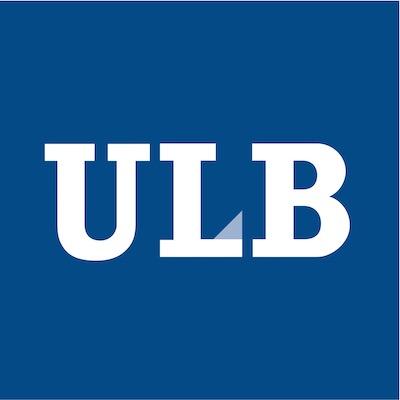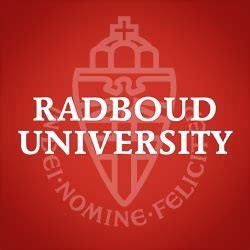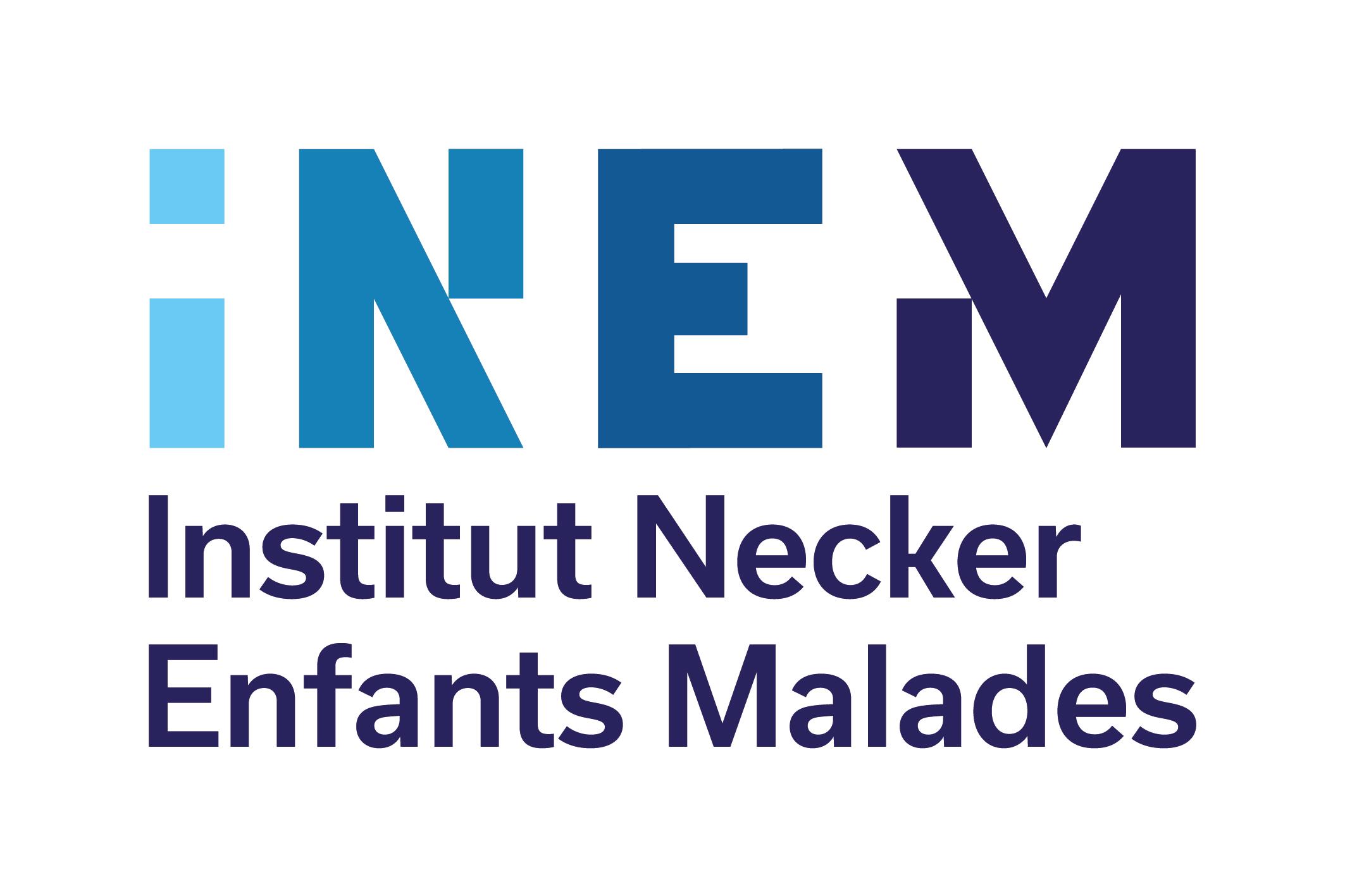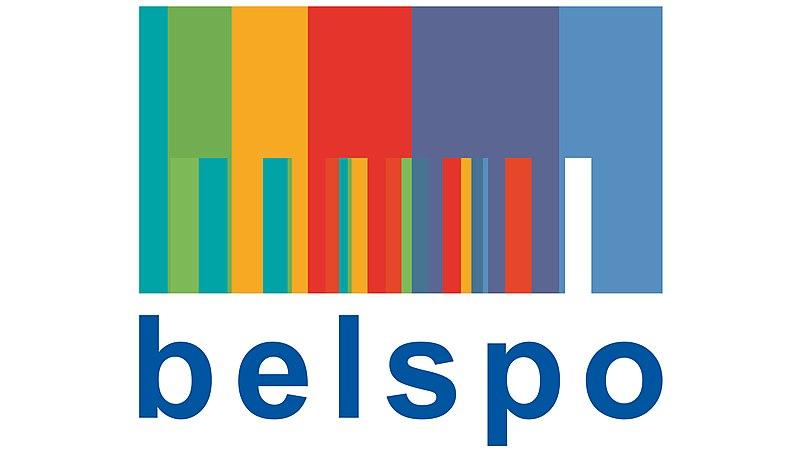THE AMBASSADORS FOR THE ERC NETWORK
The European Research Council (ERC) and the Association of ERC Grantees (AERG) are proud to announce the launch of an exciting new joint initiative: the "Ambassadors for the ERC" network.
This collaborative effort unites ERC grantees to advocate for fundamental research.
The "Ambassadors for the ERC" network invites ERC Grantees to highlight the value of fundamental research and reinforce the ERC’s vision, particularly ahead of the next Framework Programme for Research and Innovation (FP10).
The network include grantees from across EU Member States and Horizon Europe Associated Countries, inviting them to participate in voluntary activities to:
- Promote the importance of frontier research funding to policymakers, media, and local communities.
- Share insights about ERC funding opportunities and champion the mission of the ERC.
- Support ERC National Contact Points (NCPs) and AERG efforts through events, workshops, and outreach initiatives.
This initiative is intended to complement the work of ERC NCPs by adding a voice at the national level.
Ambassadors will advocate for frontier research through talks, conferences, and media engagement, often in collaboration with NCPs and the AERG.
Below you can find the profile of each of the 32 ambassadors, organized by country:
AUSTRIA
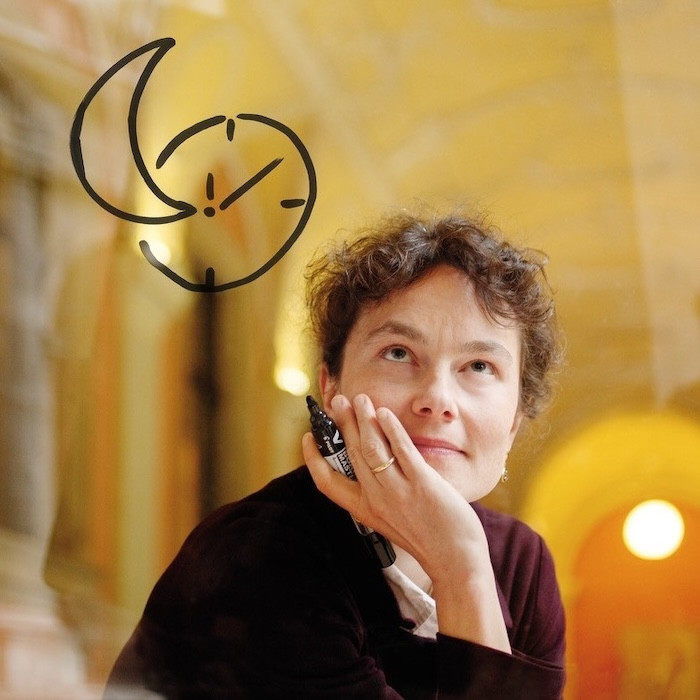
Cog LS 2018 - MariTime
Kristin Tessmar-Raible is a professor of chronobiology at the University of Vienna and a Helmholtz Distinguished Professor at the Alfred Wegener Institute and the University of Oldenburg in Germany. Her focus is on marine chronobiology spearheading scientific insights into the molecular and cellular mechanisms of circadian, more specifically non-circadian rhythms, and non-visual effects of light.
The frontier character and scientific value of her work is attested by receiving multiple awards, including an EMBO membership, two HFSP grants, an ERC starting grant and a subsequent ERC consolidator grant. Members of her lab have also profited from the Marie Skłodowska-Curie Actions Individual Fellowships.
She believes the ERC support has been instrumental to her research and career progress. She looks forward to reciprocating it by raising awareness surrounding frontier research and help others to gain similar support. Additionally, Kristin knows the challenges of dual career couples sharing the work with scientist Florian Raible with whom she is raising three children.
BELGIUM
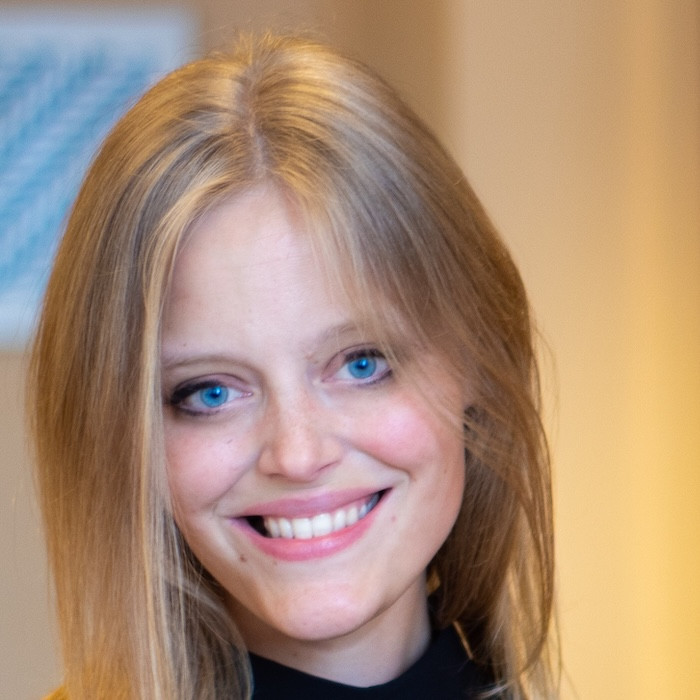
StG SH 2024 - DISOBEY
Prof. Emilie A. Caspar is an Associate Professor at Ghent University where she leads the Moral & Social Brain lab. She earned her PhD in social and cognitive neurosciences from the Université libre de Bruxelles. Her primary expertise focuses on themes related to obedience to authority and harmful behaviours. She initiated scientific projects in countries and populations, such as inmates or genocide survivors, that neuroscientists seldom or rarely study. She has notably conducted interviews and brain studies with former genocide perpetrators and rescuers in Rwanda.
CROATIA
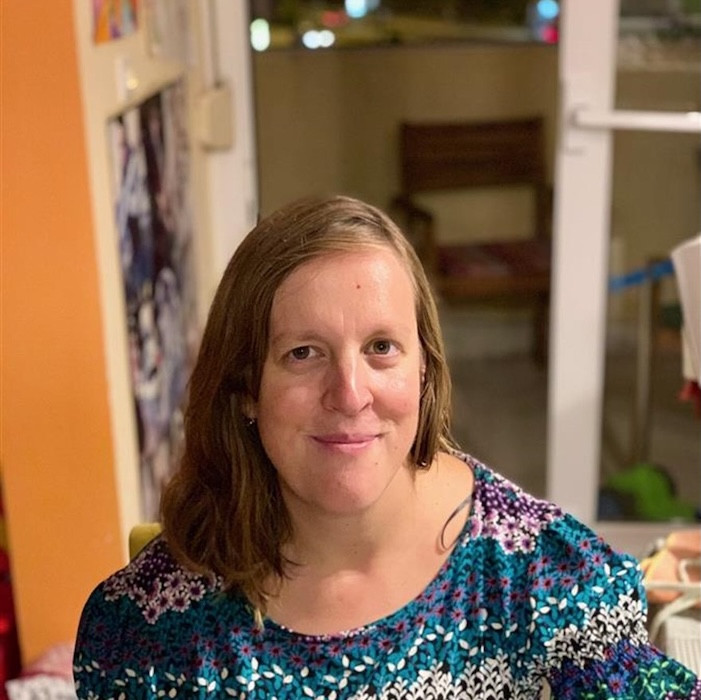
StG PE 2020 - SHExtreme
Jadranka Šepić is an associate professor of environmental physics at the Faculty of Science, University of Split. She was born in Split, Croatia. She obtained a master’s degree and a PhD in Geophysics at the University of Zagreb. She worked as a PhD student at the Institute of Oceanography in Split and spent a year abroad doing research at the University of the Balearic Islands in Palma de Mallorca and the Institute of Ocean Science on Vancouver Island, in British Columbia.
Jadranka is devoted to the study of extreme sea levels, specifically meteotsunamis, i.e. tsunamis of atmospheric origin. She also studies storm surges, tsunamis and other sea level oscillations that can lead to dangerous extremes and flooding. She is particularly interested in historical sea level extremes.
Jadranka is a double European Research Council grantee. She is a PI of the ERC Starting Grant project SHExtreme, and of the ERC Proof of Concept MeD-Track project. As part of the SHExtreme project, Jadranka's group is investigating the contribution of under-researched sub-hourly sea level oscillations to extreme sea levels along the European coast. The research aims to assess the current and future distribution of sub-hourly sea level oscillations and estimate their contribution to the overall extreme sea levels. As part of the MeD-Track project, Jadranka and her team are working on the development of an algorithm for detection and tracking of meteotsunamis in real time. Jadranka also led various scientific and applied national projects dealing with the extremes in the Adriatic Sea. Jadranka enjoys teaching at all levels. She participates in hands-on oceanographic workshops for both primary and secondary schools. Additionally, she gives lectures to students at the University of Split and to the public on more popular topics.
She is a recipient of several national awards, including the European Geosciences Union Natural Hazards Division Outstanding Early Career Scientist Award.
CYPRUS
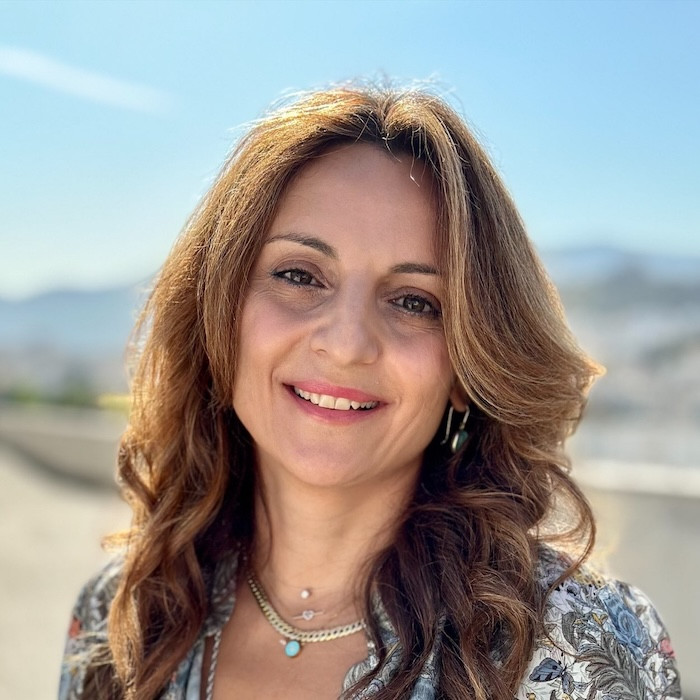
SyG SH 2021 - Water-Futures
Professor Dr. Phoebe Koundouri, is a pioneer of world-renowned human-centric, interdisciplinary systems for sustainable interaction between nature, society, and economy. A University of Cambridge MPhil and PhD, she held academic positions at the University of Cambridge, University College London, University of Reading, and London School of Economics and Politics. She is currently a Professor in Economics at the Athens University of Economics and Business (AUEB) and at the Technical University of Denmark. She is ranked among the top 2% of scientists worldwide by Stanford University (19 books, 650 published papers) and she is member of the Nominating Committee for the Nobel Prize in Economics. She is the founder of the Alliance of Excellence for Research and Innovation on Aeiphoria (200 researchers, 100 research projects in 120 countries, incubating 300 spin-offs ), President past of the European Association of Environmental and Resource Economists, Chair of the World Council of Environmental Resource Economists Association, Director of Research Socio-Economic and Environmental Sustainability Laboratory at AUEB and the Sustainable Development Unit at Athena Information Technology Research Center, Chair of the SDSN Global Climate Hub (working in 195 countries), Co-chair of SDSN Europe (900 universities). She advises numerous international organizations including the UN, G20, World Bank, European Commission, EIB, EBRD, OECD, WHO, the Lancet COVID-19 Commission and governments worldwide. Her scientific honors include European Research Council ERC Synergy Grant, Academy of Athens Award, fellow of Academia Europaea, World Academy of Art and Science, European Academy of Sciences and Arts, InterAcademy Partnership, Academy of Engineering and Technology of Developing World, Pontifical Academy of Social Sciences - Fraternal Economy Section, European Association of Environmental and Resource Economists (EAERE), European Forest Institute.
CZECHIA
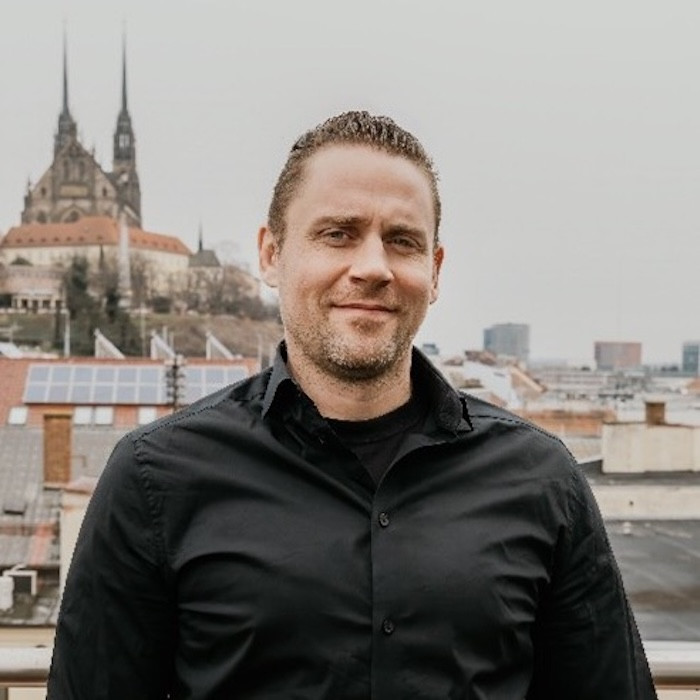
CoG LS 2023 - EPI-Centrd
Adam Williamson is a Research Team Leader at St. Anne’s University Hospital in Brno, Czech Republic. He received a bachelors and masters in electrical engineering from Texas Tech University, USA, and obtained his doctorate at the Technical University of Ilmenau, Germany. Previously, he served as research scientist at the Institute of Neuroscience (INS), a part of Inserm at Aix-Marseille University (AMU) in France. He is a recipient of 5 European Research Council (ERC) grants.
His research focuses on in vivo applications of new electronic devices and methods of brain stimulation. In 2024, he brought his ERC Consolidator grant to the International Clinical Research Centre of the St. Anne’s University Hospital and the Faculty of Medicine at Masaryk University. The grant specifically focuses on non-invasive deep brain modulation using Temporal Interference, a new non-invasive deep brain modulation method, to control epileptic brain activity in drug-resistant patients suffering from Epilepsy.
DENMARK
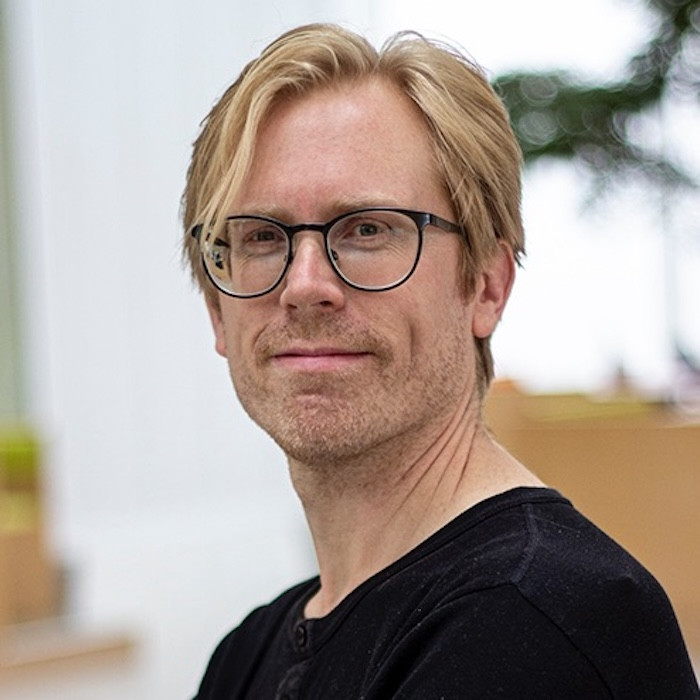
CoG PE 2024 - NoKnow
Søren Hauberg is a professor at the Technical University of Denmark. He has previously held positions at the Max Planck Institute for Intelligent Systems and the University of Copenhagen. In 2013, he was the sole computer science recipient of the Sapere Aude Research Talent award from the Danish Council for Independent Research, and in 2016 he was the sole computer science Villum Young Investigator. In 2017 he received a starting grant from the European Research Council. In 2018, he joined the Young Scientists community under the World Economic Forum and was in the process named one of "10 of the most exciting young scientists working in the world today." In 2024, he received the ERC Consolidator grant from the European Research Council.
His research is in artificial intelligence, where he develops theory and methods to extract human understandable knowledge from AI models, while respecting their inherent uncertainty. Prior to his academic life, he worked as a "digital lumberjack" in a small startup.
FINLAND
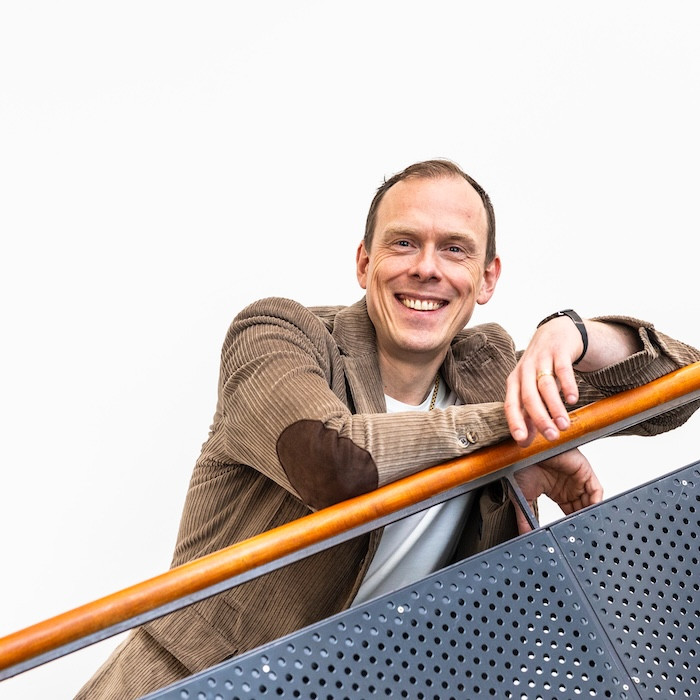
Cog PE 2023 - L-CELL
Arri Priimägi is a professor of chemistry at Tampere University, Finland, where he leads the Smart Photonic Materials research group. His work focuses on developing functional soft materials that respond to external stimuli, particularly light, enabling applications in soft robotics, photonics, and biomaterials.
Priimägi earned his Ph.D. in 2009 from Helsinki University of Technology (now Aalto University), specialising in photo-responsive polymers. After Postdoctoral Fellowships in Tokyo Institute of Technology and Politecnico di Milano, he joined Tampere University of Technology (now Tampere University), first as a tenure-track researcher and, since 2019, as a full professor. His work in light-driven materials has been recognized with several prestigious grants.
In 2016, he received a European Research Council (ERC) Starting Grant for PHOTOTUNE project, which explored tunable photonic elements and bioinspired soft-robotic constructs. He later secured three ERC Proof of Concept Grants to develop optical humidity sensors, light-controllable cell culture platforms, and reconfigurable diffractive optical elements. In 2022, he was awarded an ERC Consolidator Grant for MULTIMODAL, a project aimed at creating life-like materials inspired by biological sensory-motor interactions.
Priimägi is also a principal investigator in the Centre of Excellence in Life-Inspired Hybrid Materials (LIBER), funded by the Research Council of Finland. His contributions to photonic materials science have earned him numerous recognitions, including the Academy of Finland Prize for Scientific Courage in 2018 and election to the Finnish Academy of Science and Letters in 2024. Through his research and mentorship, Priimägi continues to advance the field of responsive materials, opening new possibilities for adaptive technologies, biomedical applications, and soft robotics.
FRANCE
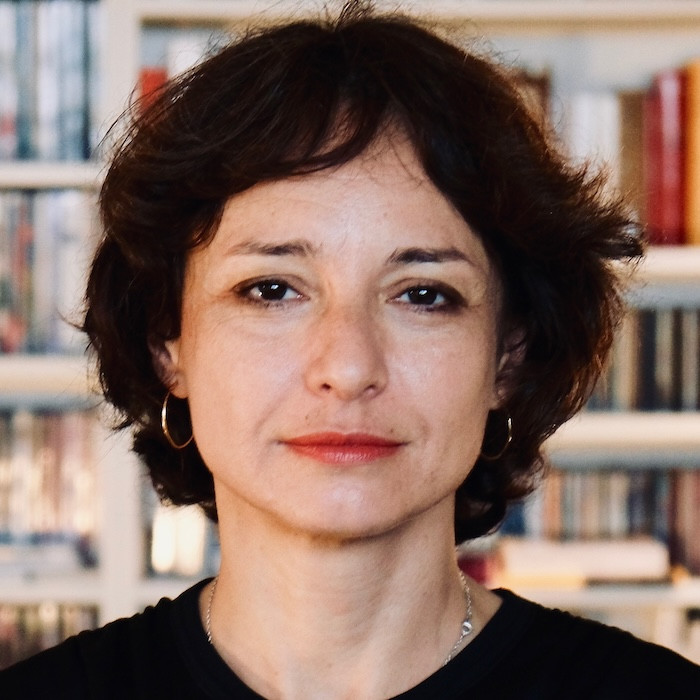
CoG SH 2021 - RESEDA
Maria Melchior is a Research Director at the French National Institute of Health and Medical Research (INSERM) (ScD in Social Epidemiology at Harvard University). Her research focuses on social inequalities in mental health, with a particular emphasis on developmental trajectories from childhood to adulthood and intergenerational transmission. Most projects have relied on data collected in longitudinal cohorts in France (EDEN, ELFE, TEMPO) or in other countries (ELDEQ in Canada, DNBC in Denmark). She was awarded the Research Prize from the European Psychiatric Association (2012), the Early Career Award from the International Society of Behavioural Medicine (2004), and the Research Addictions Prize from MILDECA (2018). She is the author and co-author of more than 180 original publications in international peer-reviewed journals. Her research is funded by France's national research agency (ANR), France's Addiction Fund, and the European Union (H2020, ERC Consolidator 2021-2026).
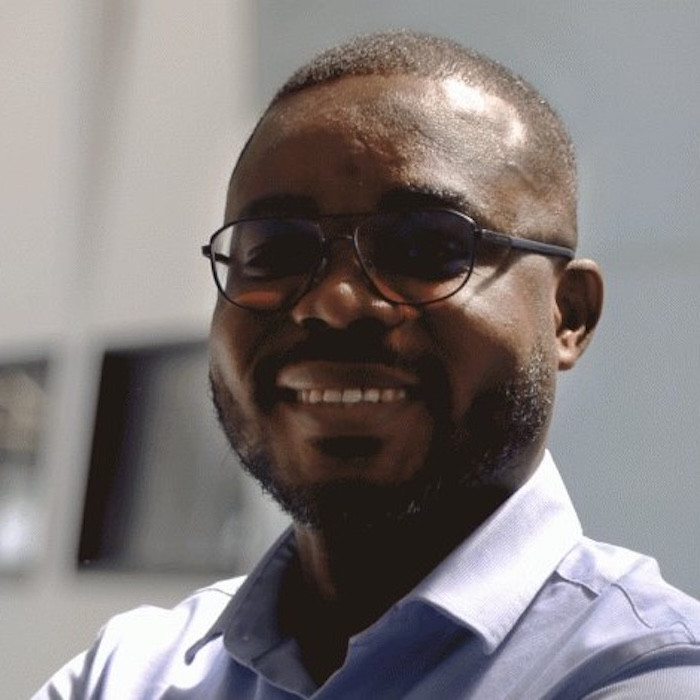
StG PE 2023 - ConCASM
Dr Prince Nana Amaniampong is a Researcher at the French National Centre for Scientific Research (CNRS), at the University of Poitiers, France. Currently an ERC Starting Grant 2023 holder (Project ConCASM) and a 2024 CNRS Bronze Medal Awardee, his research and career interests lie in using ultrasounds (either high or low frequencies) as an alternative unconcentional activation tool in assisting catalytic reactions that are considered sluggish and challenging. His expertise covers the careful control of cavitation bubble nucleations on catalytic surfaces for bio-based substrates valorization into industrially relevant platform and commodity chemicals.
GERMANY
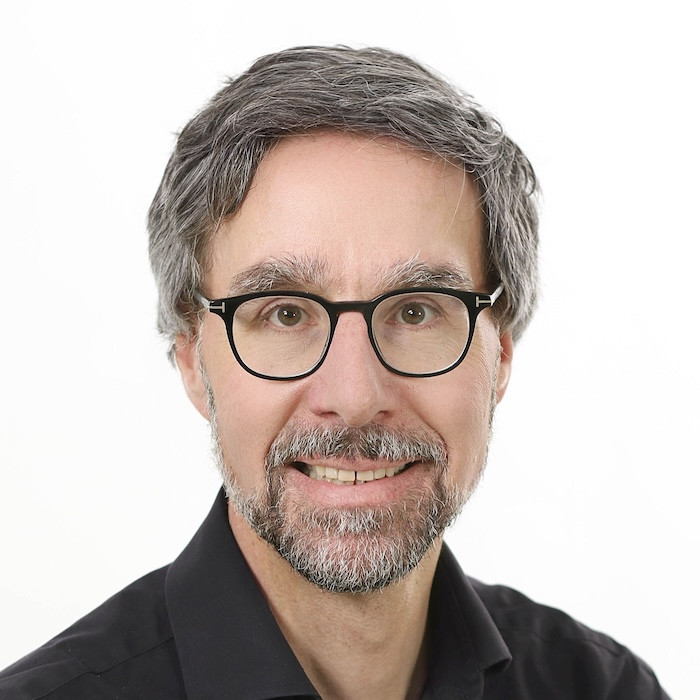
AdG LS 2025 - CENTRIC-BRAIN
Michael Platten is a Professor of Neurology and Chairman of the Department of Neurology at theUniversity Hospital in Mannheim, Director of the Mannheim Center for Translational Neuroscience and Head of the Clinical Cooperation Unit of Neuroimmunology and Brain Tumor Immunology at the German Cancer Research Center in Heidelberg. He is vice chair of the German Neurooncology Working Group (NOA) and President of the European Association of Neurooncology (EANO). Michael received his MD from the University of Bonn, Germany, his postdoctoral training at Stanford University, USA and his board certification in neurology from the University of Tübingen, Germany. His main scientific focus includes glioma immunogenicity, immune suppression, heterogeneity and personalized treatment strategies. Michael and his team have discovered novel pathways involved in immune regulation in glioma and have pioneered the development of therapeutic strategies for the immunotherapy of glioma and other types of cancer. He is currently leading early multicenter trials testing these strategies. Michael has published more than 350 articles in peer-reviewed journals including Nature, Nature Cancer, Nature Medicine, Science, Cancer Cell, PNAS, JCI, NEJM, Lancet Oncology and JCO and is listed as a Highly Cited Researcher.
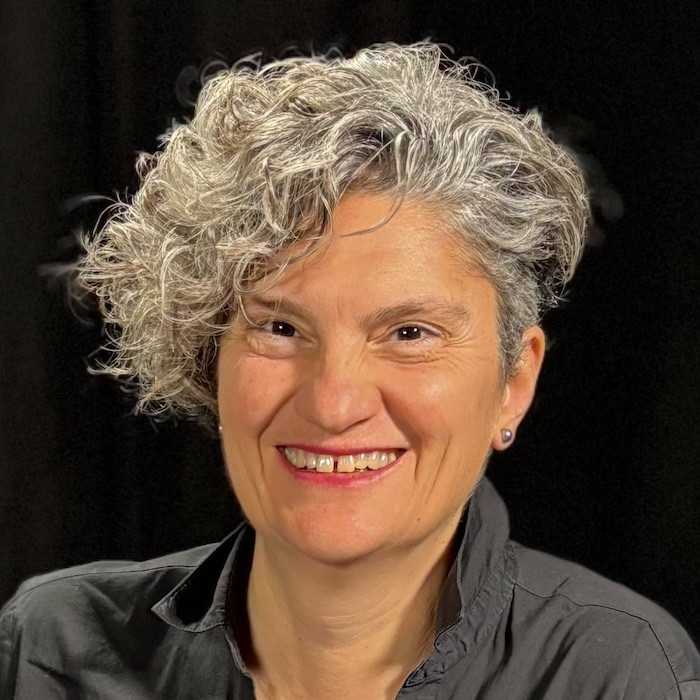
CoG SH 2019 - HRP-IAEA
Maria Rentetzi is Professor and Chair of Science, Technology and Gender Studies at Friedrich-Alexander Universität Erlangen - Nürnberg and an ERC Consolidator grantee. She works at the intersection of science and technology studies, nuclear diplomacy, and gender science studies. Previously, she held positions as guest professor at TU Berlin, Silverman Professor at Tel Aviv University, and professor at the National Technical University of Athens. Rentetzi has published widely on the history of radioactivity, the nuclear sciences, and gender and science.
GREECE
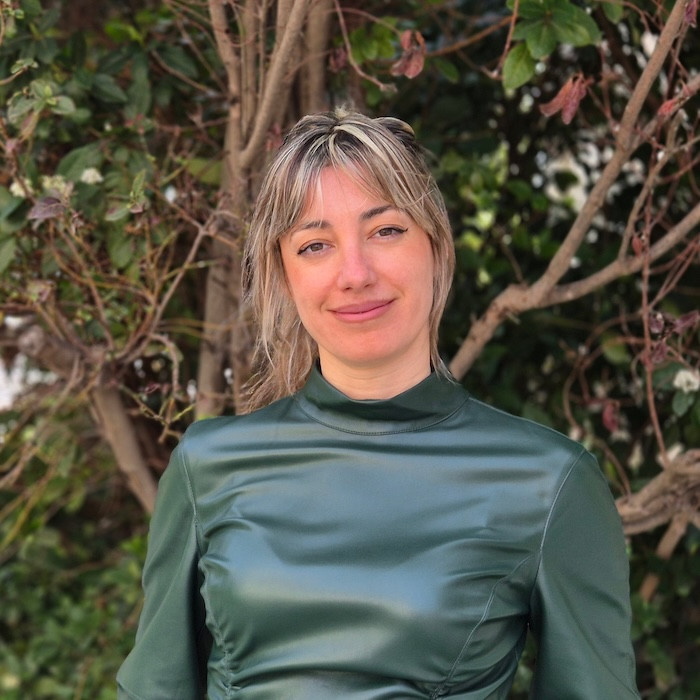
StG LS 2020 - ReSign
Dr. Themis Alissafi is Assistant Professor in Biology and Genetics at the Department of Biology at National & Kapodistrian University of Athens (NKUA), School of Medicine, and University Faculty Affiliated Researcher – Group Leader of the Immune Regulation laboratory at Biomedical Research Foundation of the Academy of Athens (BRFAA). Dr. Alissafi pursued her BSc and MSc at Chemistry from the University of Crete. She was awarded her PhD from the Medical School of University of Crete and her doctoral thesis in Dr. Panoutsakopoulou’s lab at BRFAA focused on immunology. As a European Respiratory Society (ERS) and European Academy of Allergy and Clinical Immunology (EAACI) fellow she performed postdoctoral research in immunology at Prof. BN. Lambrecht’s lab at Gent University, Belgium. Following her repatriation, she joined Prof. D Boumpas, autoimmunty and inflammation lab and Dr. Verginis, immune regulation lab at IMBB and BRFAA accordingly, as an IKY postdoctoral fellow. Since 2019 she is leading her own research group at the Immune Regulation lab of BRFAA. In 2020 she was elected Researcher (assistant professor level) at Institute of Molecular Biology and Biotechnology (IMBB) and since 2021 she holds the position of the assistant professor in Biology at Medical School, NKUA.
IRELAND
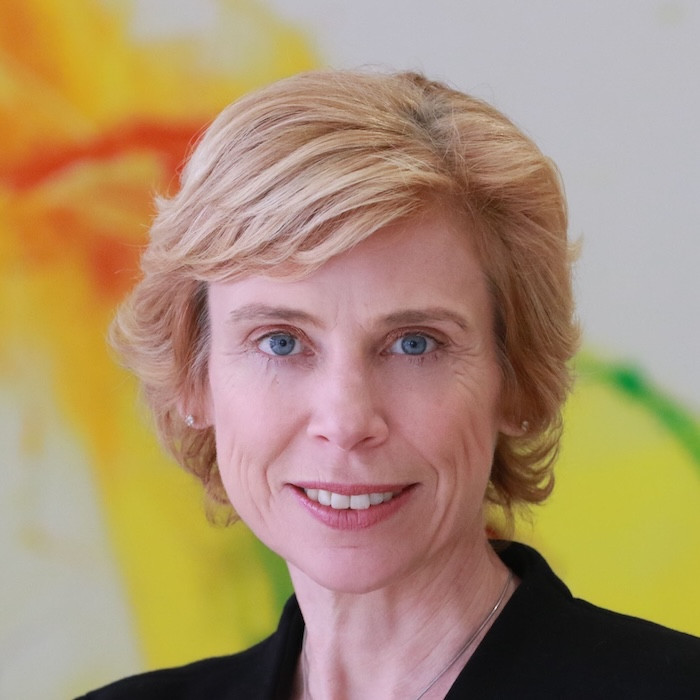
CoG SH 2017 - MISFIRES
Susi Geiger is a Full Professor of Markets, Organisations and Society at UCD. Prof Geiger’s expertise lies in questions of ethics and the common good in medical and digital markets, including issues of pricing, patenting, access to knowledge, equity and justice in markets. Prof Geiger held an ERC Consolidator Grant from 2018-2024 entitled “MISFIRES: Market contestations and market innovations in healthcare markets” (grant agreement no 771217). Through a participatory design and with a team of six researchers, she studied how civil society, industry and policymakers could work together to address market failures in healthcare. Prof Geiger was appointed as a member of the WHO Technical Advisory Group on pharmaceutical pricing policies in 2024. Her work has appeared in a wide range of highly ranked journals and policy outlets. Her latest monograph “Peak Pharma” is published by Oxford University Press in mid-2025, a co-edited volume “Market Studies: Mapping, Theorizing and Impacting Market Action” has been published at Cambridge University Press in 2024, and a volume “Healthcare activism: Markets, morals and the collective good” was published by OUP in 2021.
ISRAEL
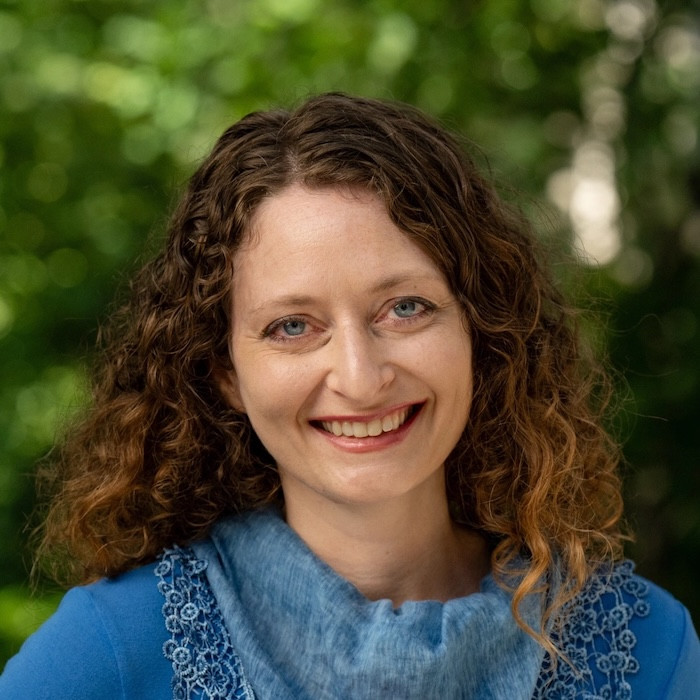
StG SH 2024 - EmpiriCon
Netta Barak-Corren is a Professor of Law at the Hebrew University of Jerusalem and a member of the Federmann Centre for the Study of Rationality. She is also a Nootbaar Religious Freedom Fellow at Pepperdine University School of Law. Previously, she taught at Chicago Law School and the University of Pennsylvania Carey School of Law. She was a Visiting Fellow at Edmund & Lily Safra Centre for Ethics in Harvard and Law, Ethics, and Public Policy Fellow at Princeton’s University Centre for Human Values, cross-affiliated with the Law Group at Princeton’s School of Public and International Affairs (SPIA).
She received my LL.B. in Law and B.A. in Cognitive Science from the Hebrew University (Valedictorian and three-time recipient of the Albert Einstein and Rector awards). She then clerked for the Chief Justice of the Israeli Supreme Court, Hon. Dorit Beinish, and pursued doctoral studies at Harvard, graduating in 2016.
She is grateful for the support of grants from the Israel Science Foundation, Israeli Democracy Institute, Barak Centre for Interdisciplinary Legal Research, Cherrick Centre for the Study of Zionism, the Minerva Centre for Human Rights, the Sinclair Kennedy Fellowship, Harvard Program on Negotiation’s Next Generation Grant and Harvard’s Interfaculty Initiative on Mind, Brain, and Behaviour, among others.
Research Awards include the S.Z. Cheshin Young Scholar Award for Academic Excellence in Law, the Gorni Prize for an Outstanding Young Scholar in Public Law, the Birk Prize for Excellence in Legal Research, the Howard Raiffa Best Paper Award, the Fisher-Sander Best Paper Award, the Menachem Goldberg Best Paper Award, and Stanford’s International Junior Faculty Forum.
ITALY
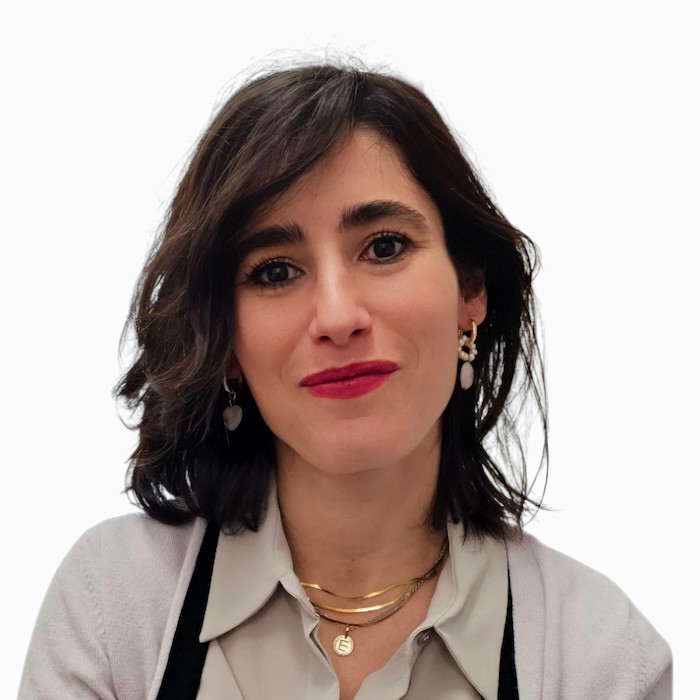
StG PE 2021 - NoOne
Prof. Eleonora Macchia is an Associate Professor in the Department of Pharmaceutical Sciences at the University of Bari and Head of Research at Åbo Akademi University. She is a recipient of the ERC Starting Grant 2021 as Principal Investigator of the project "A binary sensor with single-molecule digit to discriminate biofluids enclosing zero or at least one biomarker—NoOne" (GA#101040383). She previously served as a Senior Researcher and Principal Investigator of the ProSiT project, funded by the Academy of Finland Research Council (GA#332106). Since March 2019, she has been a project researcher at Åbo Akademi University within the H2020 SiMBiT project (GA#824946). Before that, she was a Postdoctoral Researcher at the University of Bari. She earned her PhD in Chemical Sciences summa cum laude in 2018 and her Master’s degree in Physics (110/110 cum laude) in 2014, both from the University of Bari. She has received eight scientific awards and was selected as a Top 10 finalist in the XVII Edition of the L’Oréal Italia Per le Donne e la Scienza award. By the age of 34, she has authored 68 publications in leading international journals (since 2013), accumulating a total of 2,050 citations and an h-index of 25. Additionally, she is a co-inventor of two patents and is committed to serving as a role model for young women in science.
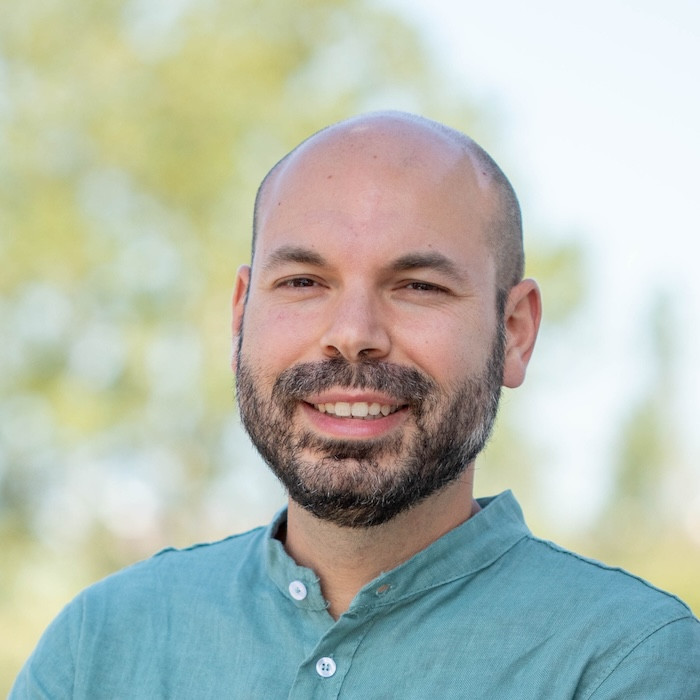
StG PE 2024 - EOS
Giuseppe M. Paternò has a PhD in Physics at the University College London, with a project focused on the study of the structural and dynamical features of π-conjugated carbon materials by means of neutron scattering techniques, with the view to understand and enhance their light-harvesting properties for photovoltaic applications. In 2015, he joined the Centre for Nanoscience and Technology of the Italian Institute of Technology with a Marie-Curie fellowship and investigated the optical properties of carbon-based nanomaterials and photonic devices via ultrafast optical spectroscopic techniques. He is currently Associate Professor at the Physics Department of Politecnico di Milano. There, he investigates light-matter interaction phenomena in molecular and nanostructured systems. His focus lies in unravelling how this interaction can be exploited to modulate biological phenomena, aiming to confer novel functionalities or enhance existing ones. Currently, he is engaged in the ERC project EOS, which aims to use light to control bacterial functions, such as their motility and the development of resistance to antibiotics.
LUXEMBOURG
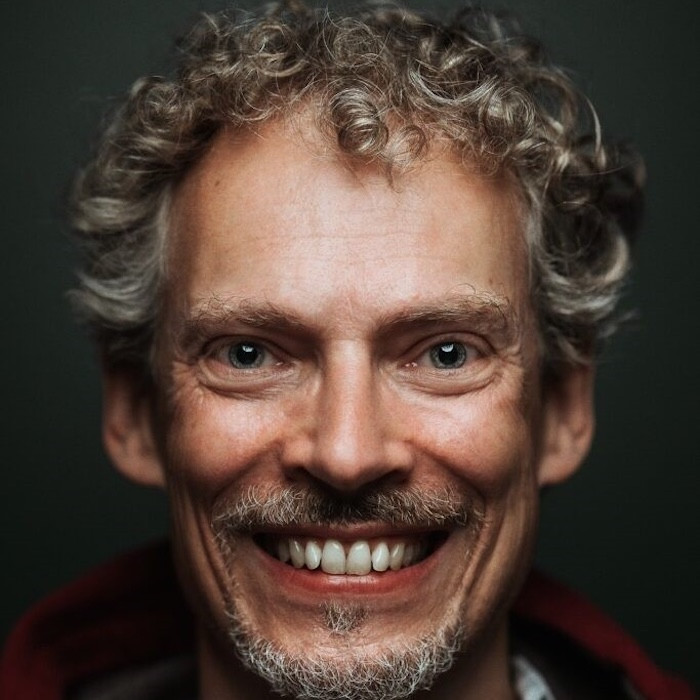
SyG PE 2025 - ALCEMIST
Jan Lagerwall (Swedish; M.Sc. Physics 1997; Ph.D. Materials Science, 2002) is professor in physics at University of Luxembourg. His research focuses on soft matter physics, chemistry and materials science, connecting liquid crystals with many other fields, from fiber spinning and fluid mechanics to art, architecture, robotics and security. The motivation ranges from the scientific beauty to the diverse application opportunities arising through cross fertilisation with other disciplines. Jan is currently coordinating the ERC SyG project ALCEMIST (with M.H. Godinho, Lisbon, and E. Terentjev, Cambridge) and he previously held one ERC CoG and two ERC PoC projects. As postdoctoral researcher Jan worked with N. Clark (Boulder), G. Heppke (Berlin) and F. Giesselmann (Stuttgart). He previously held group leader positions at Martin Luther University Halle-Wittenberg (Germany) and Seoul National University (Korea). He is actively working to bring the fruits of his group’s academic research to use for society and industry through a multitude of collaborations and the foundation of spin-off companies.
NETHERLANDS
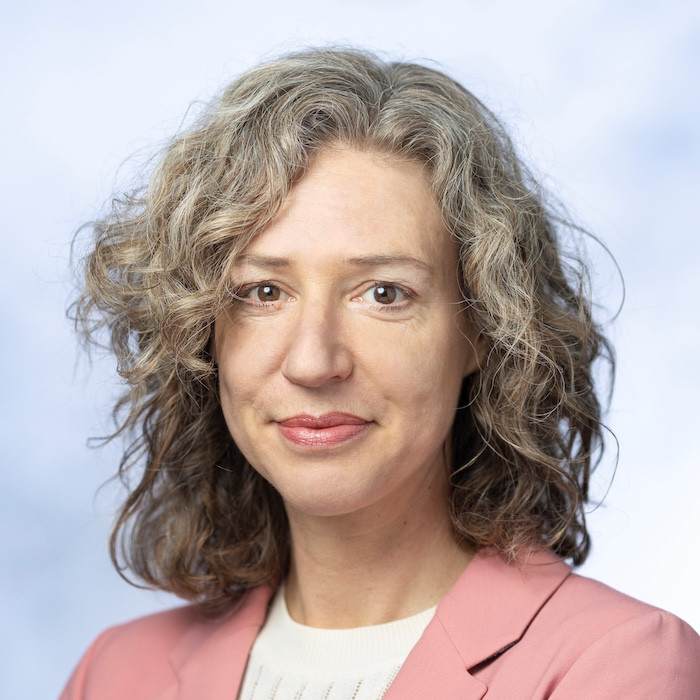
AdG SH 2022 - JOINED UP JUSTICE
Elies van Sliedregt is Professor of Criminal Law & Procedure at Tilburg University, the Netherlands. Previously she was professor of international criminal law at the University of Leeds, UK. Before that she worked at the Vrije Universiteit Amsterdam where she was Dean of the Faculty of Law from 2011 to 2015. In 2022, she received an ERC Advanced Grant for the project Joined Up Justice - Building a Global Justice System at the Domestic Level. Recent research focuses on the interplay between international criminal law, refugee law and EU criminal law. Elies van Sliedregt was the 2015 Holding Redlich fellow at the Castan Center for Human Rights at Monash University, Melbourne and, in 2018, appointed as Fellow of McLaughlin College, York University, Toronto. She is member of the Royal Netherlands Academy for Arts and Sciences (KNAW), sits on the Advisory Committee on Public International Law (CAVV) and is a trustee of the British Institute of International and Comparative Law (BIICL).
NORWAY
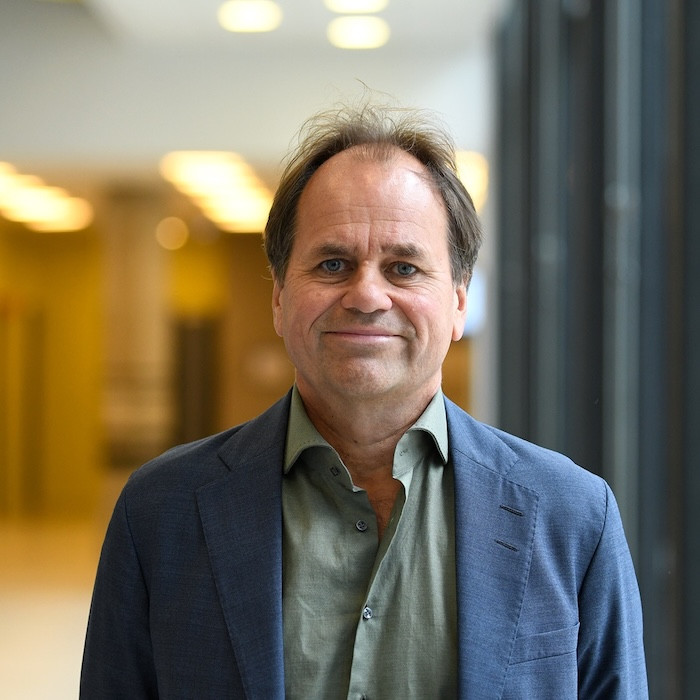
AdG SH 2018 - FAIR
Bertil Tungodden is a professor at the Department of Economics, NHH Norwegian School of Economics, Scientific Director of the Centre of Excellence FAIR (Centre for Experimental Research on Fairness, Inequality and Rationality), co-director of the research group The Choice Lab, and Mercator Fellow at the CRC “Rationality & Competition” funded by the German Research Council. He has previously been an Einstein Visiting Fellow at Humboldt University in Berlin. He is an associate editor in Journal of Political Economy and Social Choice and Welfare, and a member of the new Strategy committee of the European Economic Association. Tungodden's research spans behavioural and experimental economics, development economics, distributive justice and social choice theory. He has held an ERC Advanced Grant on the project “Fairness and the moral mind” and a Research Excellence Grant from the Research Council of Norway on “Fair inequality and personal responsibility.”
POLAND
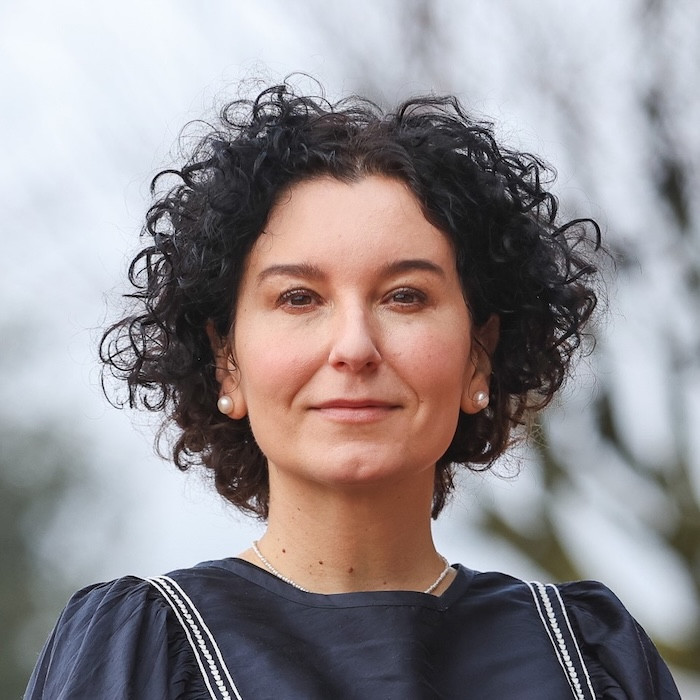
CoG SH 2022 - MULTILING-HIST
Justyna Olko is a professor at the University of Warsaw's Faculty of “Artes Liberales”, director of its Center for Research and Practice in Cultural Continuity, and a guest researcher at the Max Planck Institute for Evolutionary Anthropology in Leipzig. Her experience encompasses a number of multidisciplinary team projects as well as outreach-oriented enterprises in close collaboration with research institutions from Europe, the Americas and Africa. Her main areas of research include Indigenous history and sociolinguistics, multilingualism, linguistic and cultural diversity, language revitalization and decolonial research practices. Justyna is not only a recipient of both the ERC Starting and Consolidator Grants, but is also the first researcher in Poland to have obtained an ERC grant in the humanities, and the first woman and representative of the humanities and social sciences to be awarded the grant twice. She also coordinated the project "Engaged Humanities in Europe" (Twinning Program, Horizon 2020), officially recognized as "a success story" of the European Commission, and beginning this year, she will coordinate the consortium project "Fostering Linguistic Capital: A Roadmap for Reversing the Diversity Crisis and Activating Societal Benefits in Europe"(HORIZON-CL2-2024-HERITAGE-01). In 2020 she became a winner of the Falling Walls Science Breakthrough of the Year in social sciences and humanities for “Breaking the walls between Academy and local communities in favor of linguistic diversity”. Justyna consciously combines academic research with socially engaged work dealing with marginalized and minoritized communities, acting as a self-reflective ally of Indigenous and ethnic minority groups. Over the last fifteen years, together with her team members she has been able to foster broad relationships and innovative networks between academic, NGOs and community partners in Europe and beyond.
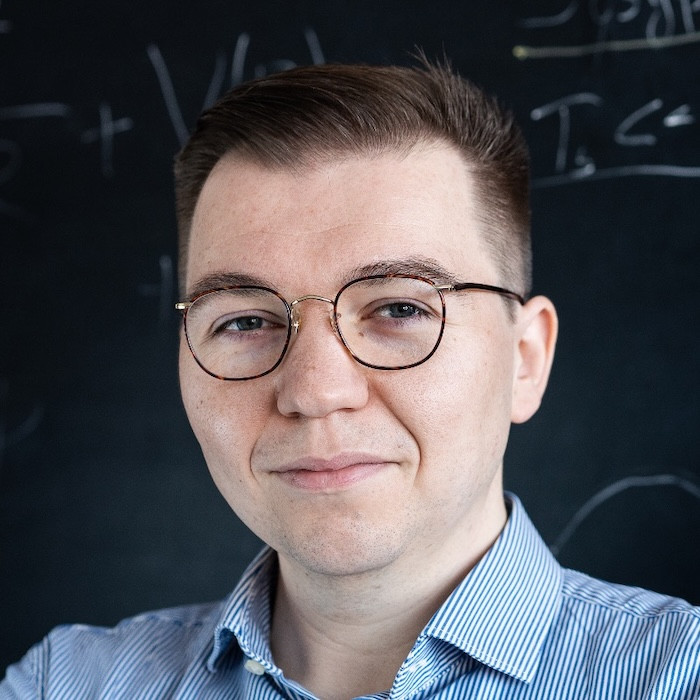
StG PE 2022 - QuantMol
Michał Tomza is a full professor, leader of the Quantum Molecular Systems research group, and head of the Centre for Atomic Molecular and Optical Physics at the University of Warsaw. He specialises in the physics and chemistry of ultracold quantum matter, including the theory of interactions and collisions of ultracold atoms, ions, and molecules controlled with electromagnetic fields and their application in quantum science in close collaboration with experimental groups. He finished his PhD in quantum chemistry and theoretical physics in Warsaw, Poland, and in Kassel, Germany, in 2014. Next, he was a postdoctoral researcher in Vancouver, Canada, and in Barcelona, Spain. Since 2017, he has led his research group at the University of Warsaw. He has also done research as a visiting scientist at several institutions in Europe and the US. He won the ERC Starting Grant in 2021 and National Science Centre Award in Physical Sciences and Engineering in 2020 and is a member of the Polish Young Academy.
PORTUGAL
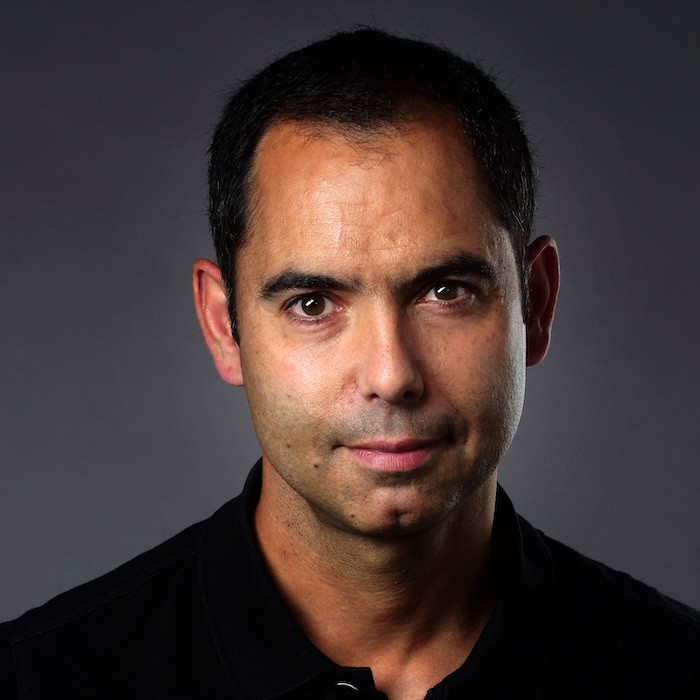
AdG LS 2024 - NeurimKisses
Henrique Veiga-Fernandes studied Veterinary Medicine at Universidade de Lisboa, Portugal and at Università degli Studi di Milano, Italy. In 2002, he obtained a PhD in Immunology from Université René Descartes, Paris, France, before moving to the National Institute for Medical Research, London, UK, as a postdoctoral fellow. In 2009, he set up his laboratory at Instituto de Medicina Molecular, Portugal, and he served as member of the direction team from 2014 to 2016. Henrique Veiga-Fernandes joined the Champalimaud Centre for the Unknown, Portugal, in 2016 where he is Full investigator, and served as Champalimaud Research director from 2018 to 2024. Henrique Veiga-Fernandes made foundational discoveries in the areas of adaptive and innate immunity, pioneering the area of peripheral neuro-immune interactions. Henrique Veiga-Fernandes integrates the Board of Reviewing Editors of Science AAAS, USA; he is member of the European Molecular Biology Organisation (EMBO) and integrates the EMBO membership committee since 2024. He was made Commander of the Order of Sant’Iago da Espada by Portugal in 2015, and he was member of the National Council of Science, Technology and Innovation in XXII Government of Portugal in 2021-2022. He secured several European Research Council (ERC) awards (2007, 2013, 2015, 2017 and 2023). Amongst others, he won the Pfizer Prize for basic Science (2014, 2016, 2020 and 2022), the Allen Distinguished Investigator award US in 2018, and the Chan Zuckerberg Initiative (CZI) Award, US in 2020.
ROMANIA
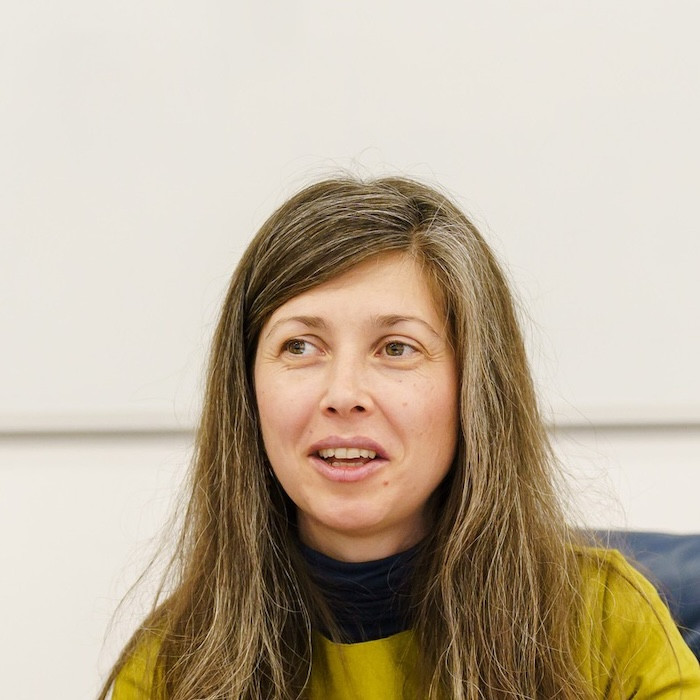
StG SH 2024 - avataResponsibility
Mihaela Constantinescu is lecturer at the Faculty of Philosophy, University of Bucharest, Romania, and executive director of the Research Centre in Applied Ethics (CCEA). Her research areas include virtue ethics, business ethics, Human-Robot Interaction, and AI ethics, with a focus on the normative interplay between the concepts of moral responsibility and moral agency in relation to individuals, organisations, and AI systems. Her articles were published in journals such as Ethics and Information Technology, Philosophy & Technology, International Journal of Social Robotics, Journal of Business Ethics. She is co-author of the book “Institutionalizing ethics: mechanisms and instruments” (in Romanian). Between 2024-2028 Mihaela is the PI of the ERC Starting grant avataResponsibility: “Avatar agency. Moral responsibility at the intersection of individual, collective, and artificial social entities in emergent avatar communities”. Before moving to academia, Mihaela has worked for over 15 years as a communications consultant in the private, governmental and NGO fields.
SLOVAKIA
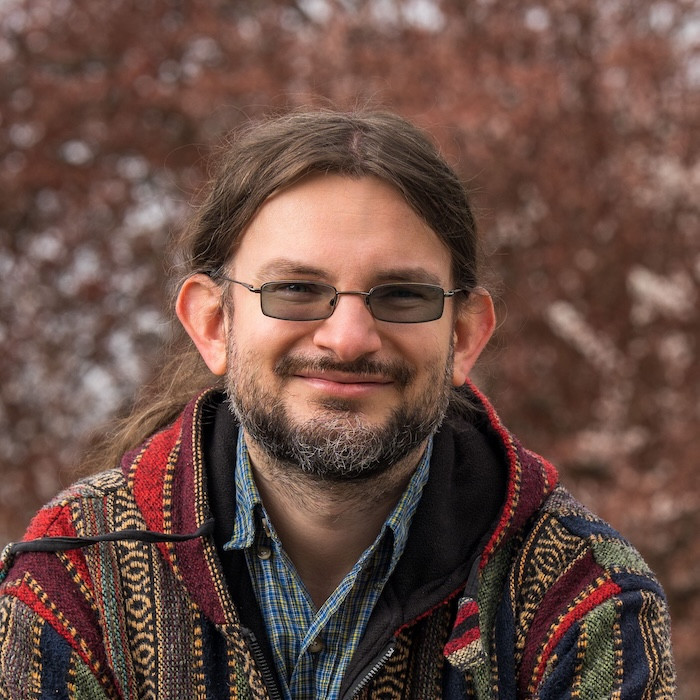
StG PE 2023 - CAPELE
Michal Majek is currently a research group leader at the Department of Organic Chemistry, Faculty of Natural Sciences, Comenius University Bratislava (SK). He received his Master’s degree (engineering) at the Institute of Chemical Technology, Prague (CZ) and his doctorate from the University of Regensburg (D). During the 14 years which he spent outside of his home country, he held various posts at the University of St. Andrews and Glasgow (UK), Brno (CZ), Rostock (D) and Los Angeles (USA). This diverse research experience helped him to become proficient in organic photochemistry, electrochemistry and computational chemistry. He returned to Slovakia with a Marie Curie fellowship in February 2020, just weeks before his new workplace had to shut down due to the pandemic. MM was awarded a starting ERC grant in 2023, as a first person ever at a Slovak university. This allowed him to establish his own research group specializing in organic reactions initiated by single electron transfer. In addition to research and teaching, MM is active in science outreach and in the training of talented high-school students interested in chemistry. He is involved in the organization of the Slovak Chemistry Olympiad and other competitions targeting future scientists.
SLOVENIA
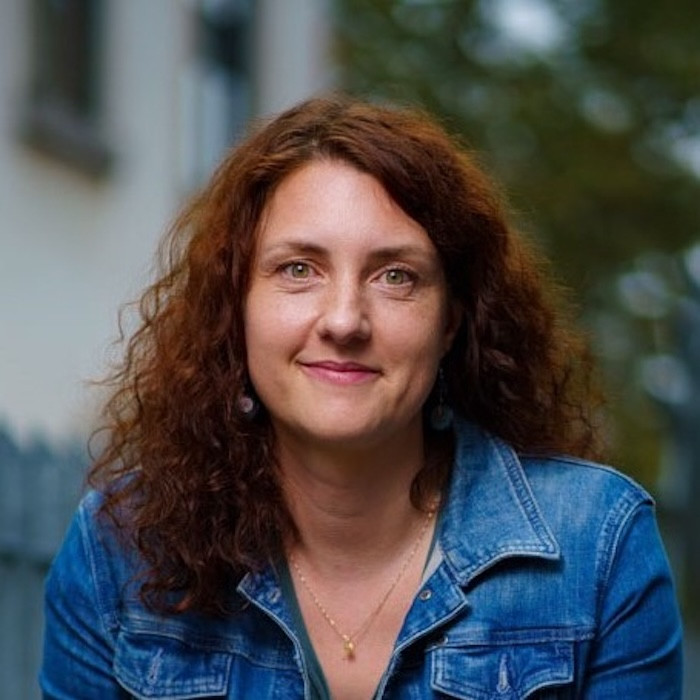
StG SH 2024 - Sentrix
Dr. Mojca M. Plesničar is a senior research associate at the Institute of Criminology and an associate professor in Criminology at the Faculty of Law, University of Ljubljana. She holds law and criminology degrees from the University of Ljubljana and the University of Oxford. Her research interests centre on criminal justice, focusing specifically on sentencing and decision-making processes, punishment, violent and sexual crimes, prison studies, the experiences of women and young offenders, and the integration of new technologies within the criminal justice system.
Mojca currently leads the ERC-funded Sentrix project, examining sentencing through the lens of choice architecture. The project employs innovative methods, such as visualisations and simulations, to enhance transparency and understanding of sentencing decisions.
She actively participates in the broader European research community through international gatherings, academic publications, and collaborative research networks. Passionate about mentoring PhD students and junior colleagues, Mojca is deeply committed to rigorous scientific inquiry. She places particular emphasis on effectively communicating research findings to the public and engaging closely with stakeholders to foster informed dialogue and practical improvements in criminal justice.
SPAIN
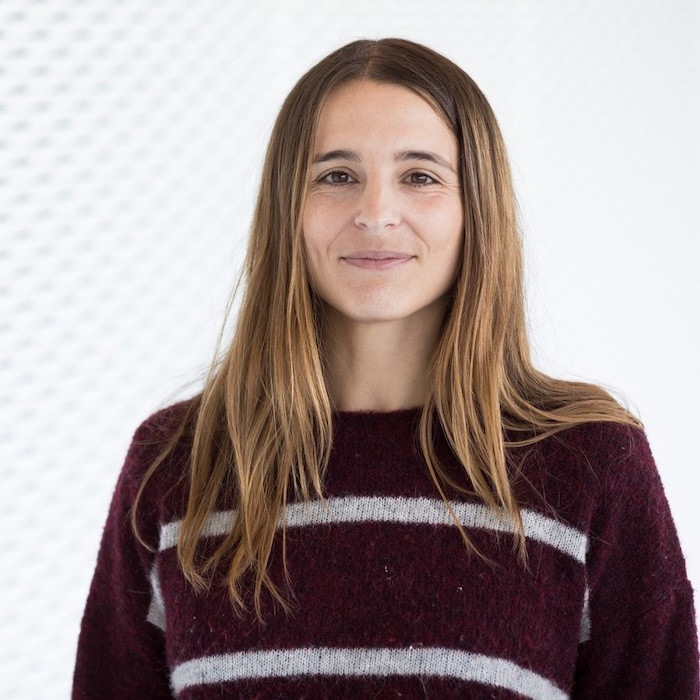
CoG SH 2024 - GorBEEa
Ainhoa Magrach is an Ikerbasque Research Professor at the Basque Centre for Climate Change (BC3). Her research is centred on the impacts of global change on biodiversity, species interactions, and ecosystem functioning, with a particular focus on pollination networks and ecological stability. She has published extensive work on biodiversity-ecosystem functioning (BEF) relationships, integrating fieldwork, network theory, and ecological modelling. Additionally, she served as the president of the Asociación Española de Ecología Terrestre (AEET) and was involved in various conservation initiatives and science communication efforts. Most recently, she expanded her research into microbial ecology, focusing on pollinator microbiomes and their role in ecosystem processes.
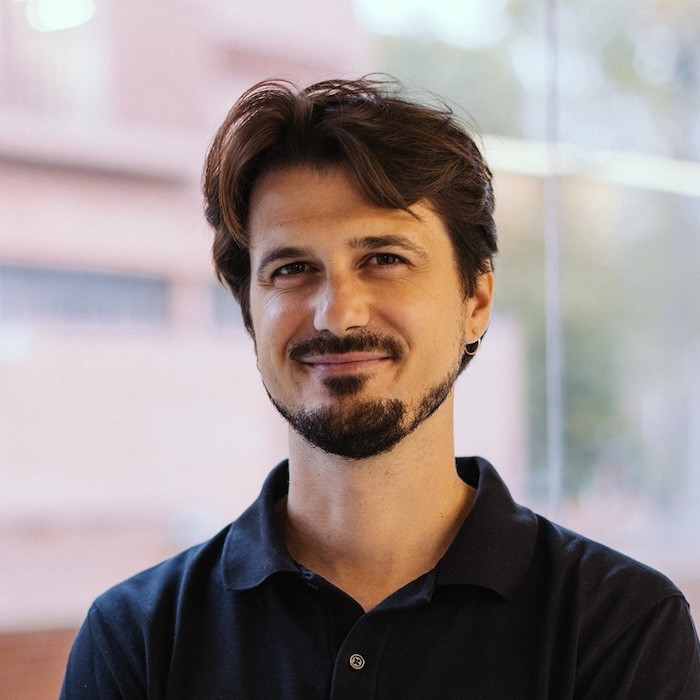
StG SH 2024 - Mut-Scales
Marc de Manuel obtained a BSc in Human Biology, an MSc in Bioinformatics, and a PhD in Evolutionary Biology from the Universitat Pompeu Fabra (Barcelona), where he worked with Tomàs Marques-Bonet to study the population history of chimpanzees and bonobos. He then joined the lab of Molly Przeworski at Columbia University (NYC) as a postdoc, investigating the determinants of germline mutation and recombination in vertebrates. In 2024, he launched the Mutation Dynamics Lab at the Institute of Evolutionary Biology (IBE), supported by an ERC Starting Grant, to study the molecular mechanisms driving mutation and their evolutionary implications.
SWEDEN
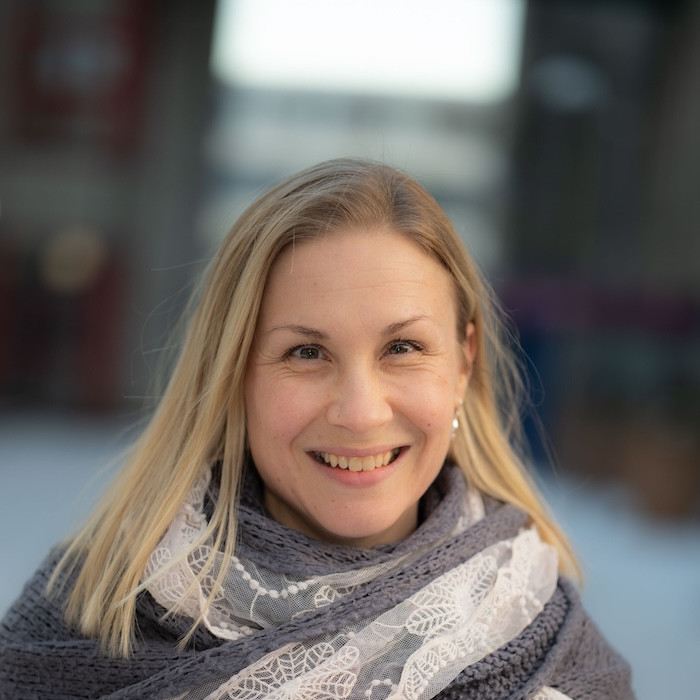
CoG LS 2024 - SAFER
Pauliina Damdimopoulou is a full professor of reproductive biology at the Department of Women's and Children's Health, Karolinska Institutet in Stockholm, Sweden. She completed her PhD on dietary polyphenols and estrogen signaling at the University of Turku, Finland, in 2008. She then conducted an industrial postdoctoral project on androgen signaling in Paris, France, and followed by an academic postdoctoral position on early embryo development and ovarian biology at Karolinska Institutet. In 2015, she established an independent lab focusing on the effects of chemicals on ovaries and female fertility. Prof. Damdimopoulou is also the co-coordinator of Sveafertil, Sweden’s national fertility preservation study for girls, the recipient of the 2023 ERC Consolidator Grant, and co-lead of the Environmental Endocrinology Focus Area for the European Society of Endocrinology. She has authored over 90 research papers.
SWITZERLAND
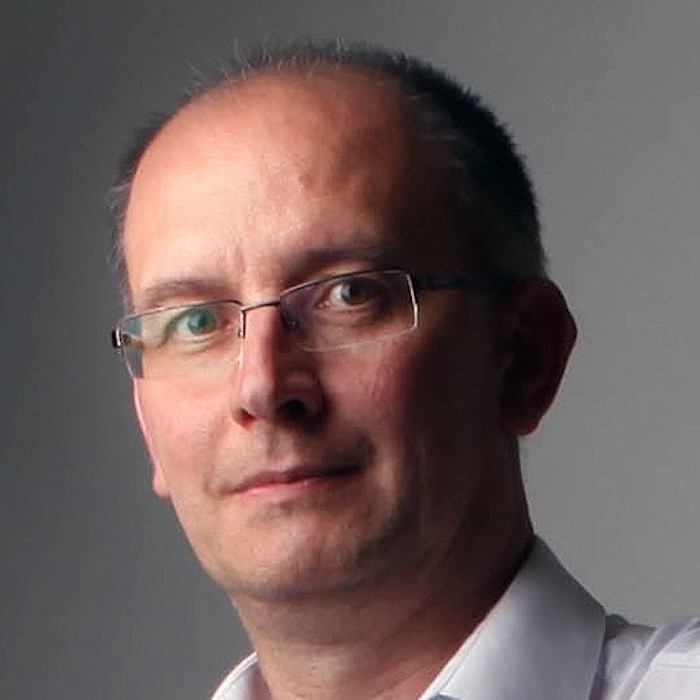
AdG PE 2016 - Millitech
Adrian M. Ionescu is a full Professor at Ecole Polytechnique Fédérale de Lausanne (EPFL), Switzerland.
Currently serving as the director of EPFL's Nanoelectronic Devices Laboratory, he has pioneered breakthrough nanoelectronic technologies such as steep slope and phase change devices, integrated biosensors, and RF MEMS resonators for energy-efficient Edge AI and Internet of Things applications. With a publication record over 500 articles in renowned journals and conferences, Professor Ionescu's contributions have been widely acknowledged. He has received the French André Blondel Medal in 2009, the IBM Faculty Award in 2013, and his election as a member of the Swiss Academy of Technical Sciences in 2015. Professor Ionescu's expertise has been recognized with the ERC Advanced Grant in 2016 and the ERC Synergy Grant in 2023. He is an IEEE Fellow, has served as an Editor of IEEE TED, and PUB committee of EDS and ICT sub-committee of IEEE European Public Policy. He is a member of the Editorial Board of Proceedings of IEEE. In 2024 he received the IEEE Technical Field Cledo Brunetti Award, ‘for leadership and contributions to the field of energy-efficient steep slope devices and technologies’. Currently he is also a member of the Global Future Council on Next-Generation Computing of the World Economic Forum.
TURKEY
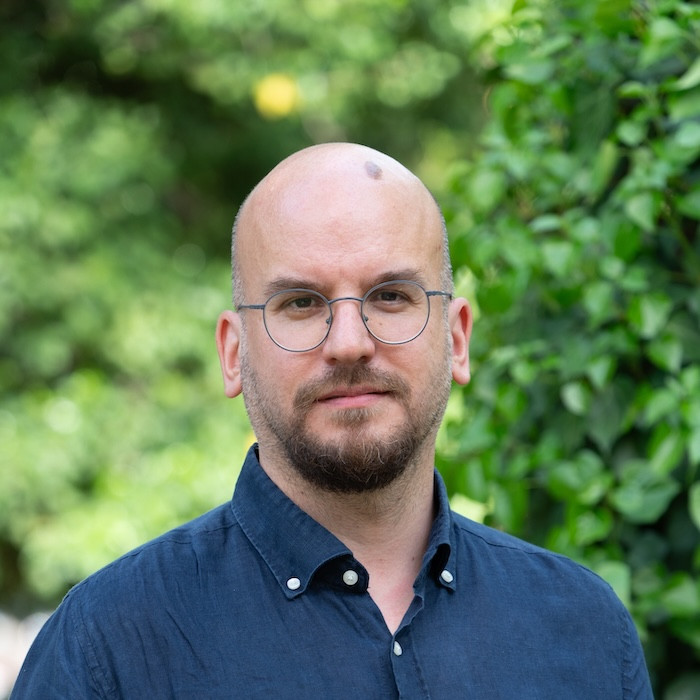
CoG PE 2021 - DEEPTRACE
Prof Dr Mustafa Yücel is a biogeochemical oceanographer pursuing a fundamental understanding of how redox reactions underpin ocean health, Earth evolution and search for life in alien worlds. After obtaining a BSc degree in Chemical Engineering (with a minor in philosophy of science) in METU, Turkiye; he pursued a doctorate degree Chemical Oceanography PhD at UDel (USA). After postdoctoral stays in UPMC, France and Geomar, Germany, Prof Yücel returned to METU and started to establish an independent research group. Since 2023, he is a full professor of oceanography. Presently his research group consists of 10 graduate students and postdoctoral scholars with over 50 publications in international peer-reviewed venues. Since 2015 he has completed 12 projects and led crucial pieces of work in two successful deep-sea cruises in the Eastern Pacific Rise and Mid-Atlantic Ridge. Dr Yücel have also led expeditions as chief scientist during R/V Bilim-2 cruises in The Black Sea, Marmara and the Mediterranean Sea between 2016 and 2024. The last several years that have been dedicated to establishing a productive research group, also coincided with significant internationalisation of research and an increased focus on global scale questions. For example, the influence of tectonics on biogeochemical cycles or how to develop sustainable marine economy in redox-active systems, such as the Black Sea, as evidenced by the two competitive H2020 Coordinatorships (Black Sea CONNECT and BRIDGE-BlackSea), which he has been co-leading on behalf of METU. Since 2023, Prof Yücel started leading the ERC Consolidator Grant ‘DeepTrace’ that will run until the end of 2027. He is also currently the PI of 2 other EU Horizon projects and a co-investigator in 4 more national projects. Mustafa Yücel has won several awards, including Turkish Academy of Sciences Young Investigator Award and Science Academy Foundation of Turkey Science Award, becoming the first marine scientist in Turkiye who reached these honors.
UNITED KINGDOM
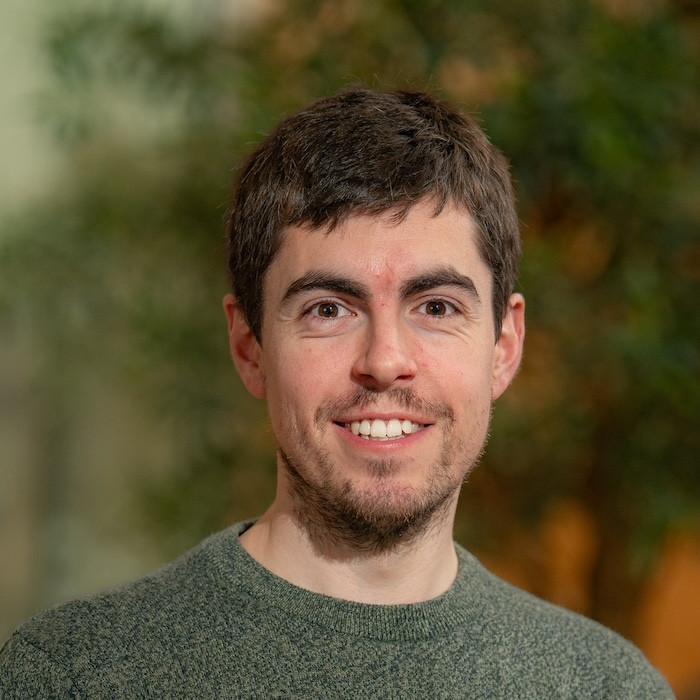
StG LS 2021 - PTFLU
David's expertise lies in the post-transcriptional regulation of RNA, particularly in the context of viral infection. His research group primarily studies influenza A virus, aiming to uncover how host cellular factors are co-opted by viral RNA throughout the influenza replication cycle. Their investigations explore key processes such as the modification of viral RNA, the trafficking of viral RNA to translation machinery, and the bundling and packaging of viral RNA into new virions. A central goal of this work is to identify a host protein-viral RNA interaction that is essential to all influenza A viruses and could serve as a target for innovative antiviral therapies. The lab maintains a strong focus on molecular biology, rooted in David’s early research studying for his PhD in molecular biology at Ulster University, UK. He then went on to conduct postdoctoral research at Duke University and the Institut Pasteur, supported by a Marie Skłodowska-Curie Fellowship. These experiences strengthened his expertise in RNA biology and host-pathogen interactions and led to his current appointment as a Principal Investigator at Queen’s University Belfast, funded by a prestigious ERC Starting Grant (2020).
Beyond the bench, David is deeply committed to public engagement and science advocacy. He actively promotes scientific literacy through outreach activities at local schools and was recently awarded a Royal Society Partnership Grant to collaborate with secondary school students on a project investigating the presence of viruses in commercially available plants. As a STEM NI Ambassador, he champions inclusive access to scientific research by offering research opportunities in his lab to students from a range of backgrounds. Over the past four years, he has mentored 21 high school and undergraduate students through summer placements and work-shadowing experiences.
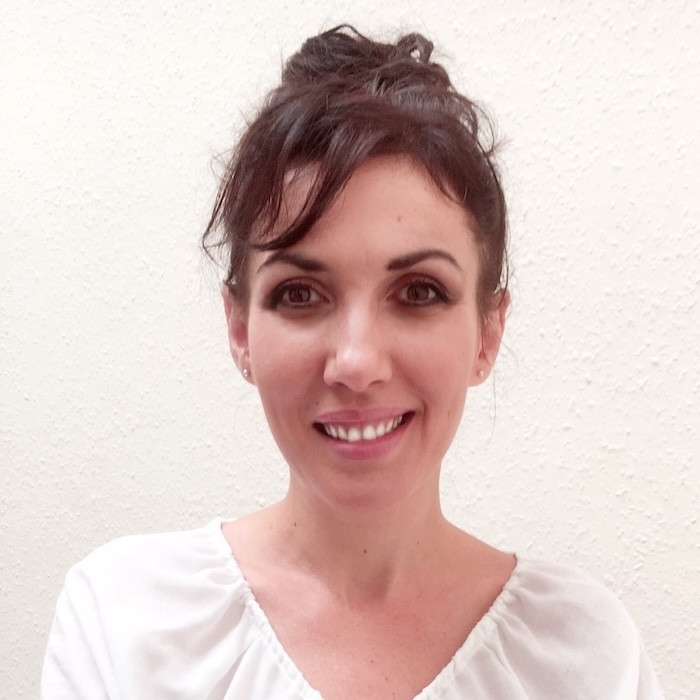
StG SH 2020 - KnowledgeLab
Mona Simion is Professor of Philosophy and Director of the Cogito Epistemology Research Centre at the University of Glasgow. Her research is in epistemology, philosophy of language, and moral and political philosophy, as well as at the intersection of these fields with social psychology, communication theory, and AI. She is the author of Shifty Speech and Independent Thought (Oxford University Press 2021), Sharing Knowledge (Cambridge University Press 2021, with Christoph Kelp), Resistance to Evidence (CUP 2024), and Knowledge-First Epistemology: A Defence (CUP 2025). She is the 2018 Mind Fellow and the winner of the 2021 Young Epistemologist Prize.
